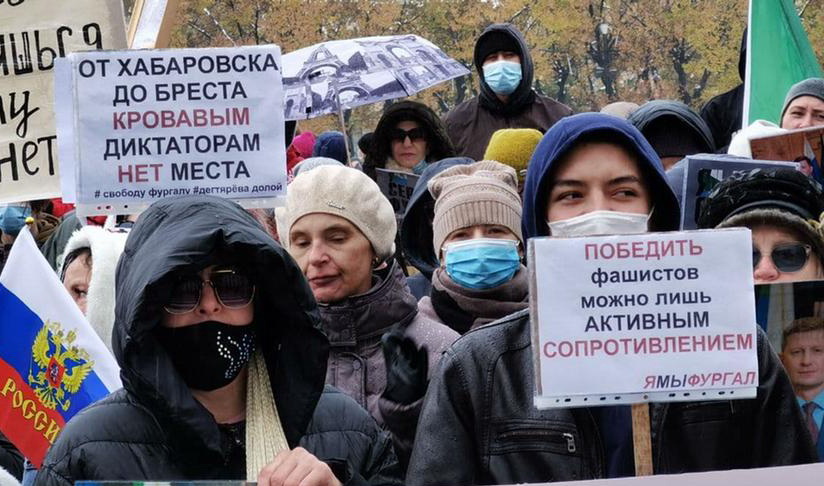“No tenemos tradiciones democráticas, hay que crearlas. Solo una revolución puede hacer esto «. ( L. Trotsky «Democracia y Revolución»)
Por Jan Kryzhkevich
Cerca de 250.000 personas participaron en las protestas que se extendieron por Rusia el 23 de enero. Las protestas tuvieron lugar en la inmensa mayoría de las capitales de los súbditos de la Federación, así como en varias otras grandes ciudades, desde Kaliningrado hasta Vladivostok. Esta es la acción de protesta más masiva desde el colapso de la URSS, que marcó el comienzo de una nueva ola de descontento popular con el régimen autoritario de Vladimir Putin.
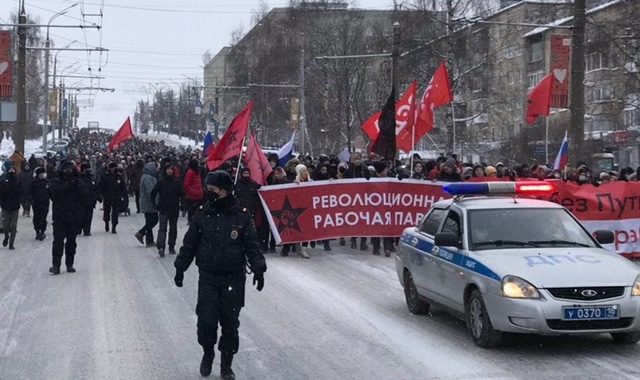
El motivo formal de la protesta en curso fue el arresto de Alexei Navalni, quien regresó de Alemania después de su tratamiento por envenenamiento. Sin embargo, los principales problemas de la Rusia actual no están en el conflicto entre Navalni y las autoridades rusas, sino en la terrible situación en la que se hundió el país durante el reinado de Vladimir Putin. No se trata solo del deprimente estado económico de los trabajadores, sino también del evidente deslizamiento del Estado ruso hacia el abismo del totalitarismo. La absoluta falta de derechos de los ciudadanos comunes frente al poder autoritario ha formado una “demanda de democracia real” en la sociedad, que en el contexto de la pobreza progresiva está ganando masa crítica, creando los requisitos previos para una situación revolucionaria.
A pesar del número relativamente pequeño de protestas en toda Rusia, esta vez hubo varias veces más manifestantes que en las manifestaciones autorizadas en 2011, sin mencionar las «Marchas de Disidencia». La geografía sin precedentes de la protesta es tan impresionante como la confirmación del comienzo de la politización masiva de la sociedad rusa, que emerge de un estado de profunda apatía e indiferencia.
La historia de Alexei Navalni es solo un detonante de la protesta de toda Rusia, pero no la razón. Entre los manifestantes hay muchos que no apoyan a Navalni, y no solo por sus declaraciones imperiales y franco nacionalismo. De hecho, el curso político del partido no registrado de Navalni («Rusia del futuro») no es diferente de las aspiraciones actuales del Kremlin, en términos de llevar a cabo reformas neoliberales y esclavizar aún más al pueblo ruso mediante el capital transnacional. Sin embargo, utilizando hábilmente el tema de la corrupción e incluyendo la retórica izquierdista de la lucha por la democracia, Alexei Navalni logró atraer a muchos seguidores, especialmente entre los jóvenes, y hoy es el político más destacado en el campo de la oposición.
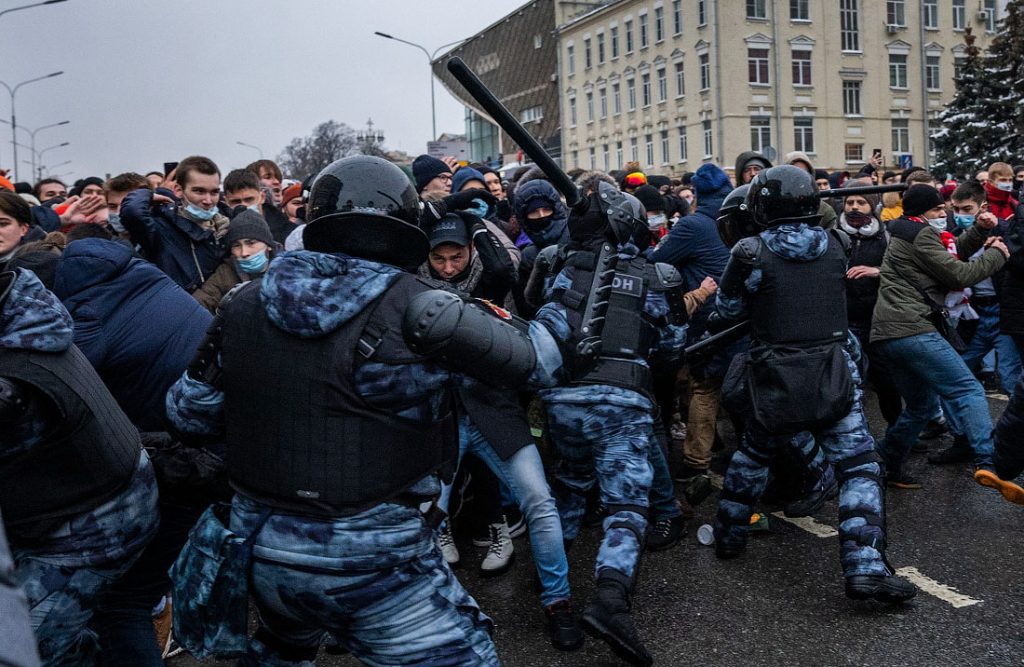
«Invierno ruso» como continuación del «otoño bielorruso» …
Uno de los factores importantes que activó la protesta rusa fue el ejemplo de la vecina Bielorrusia. Durante más de medio año, los bielorrusos han salido regularmente a protestar contra acciones, a pesar de las masivas represiones políticas, palizas, torturas, secuestros y asesinatos de opositores al régimen dictatorial de Alexander Lukashenko. A lo largo de este tiempo, se han llevado a cabo acciones de solidaridad con el pueblo bielorruso en Rusia , muchas personas famosas se oponen públicamente a las atrocidades del régimen de Lukashenko y los bielorrusos han establecido una conexión mental real con el distante y permanentemente rebelde ruso Khabarovsk . El lema: “¡No hay lugar para la dictadura desde Khabarovsk hasta Brest!” Caracteriza los objetivos comunes de rusos y bielorrusos de la mejor manera posible , a pesar de las demandas locales completamente diferentes de los manifestantes de los dos países.
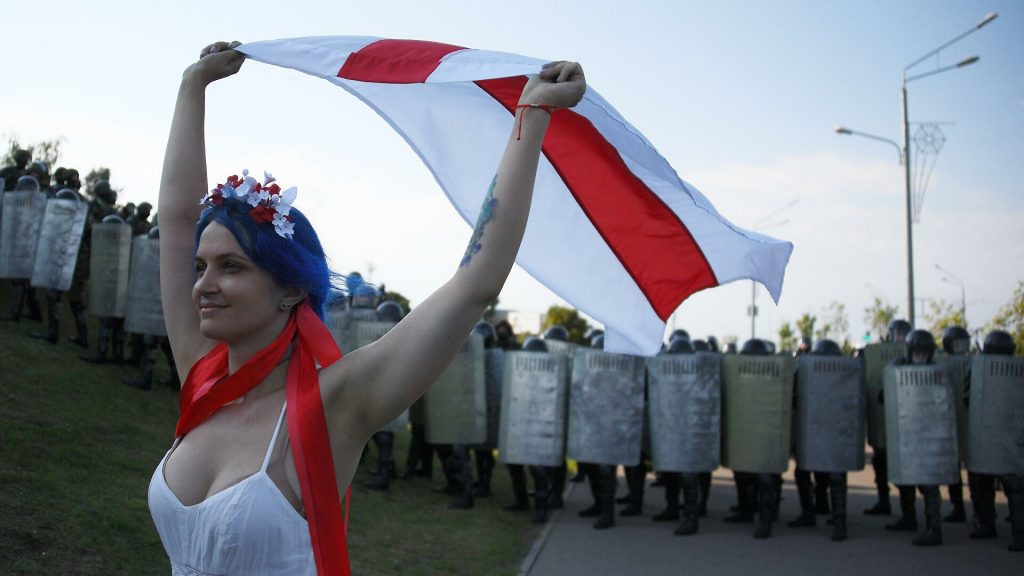
Fue Putin quien salvó al régimen de Lukashenko de su inevitable caída en agosto pasado. El Kremlin brindó al dictador bielorruso apoyo político, informativo y financiero, identificando claramente la posibilidad de una intervención externa en caso de la victoria de la revolución bielorrusa . Teniendo en cuenta la anexión de Crimea y la guerra en Donbass, la amenaza militar del Kremlin a Bielorrusia parece bastante real. En principio, Putin no puede permitir la victoria de la revolución bielorrusa , que podría convertirse en un ejemplo destructivo y provocar una grave desestabilización de la situación política en la propia Rusia. Por lo tanto, hoy, cuando los bielorrusos toman las calles de sus ciudades, apoyando a los manifestantes de Rusia, entienden muy bien que mientras Vladimir Putin esté al frente del poder ruso, es prácticamente imposible derrotar al régimen de locutores de Lukashenko. A pesar de muchas diferencias externas, la esencia de los regímenes políticos en Rusia y Bielorrusia es prácticamente idéntica: es el deseo de poder ilimitado a través de la ilegalidad y la arbitrariedad, elevado al rango de política estatal.
La naturaleza liberal del movimiento de protesta en Ucrania, Bielorrusia y Rusia no excluye la participación de la izquierda en él. Los revolucionarios no deben ignorar los procesos revolucionarios, sino participar activamente en ellos, promoviendo una agenda internacional en la lucha por los derechos y libertades políticas, por la Democracia y el Socialismo. La subjetividad política de las protestas en el espacio postsoviético apenas está emergiendo, lo que abre oportunidades reales para que los activistas de izquierda creen una organización política única capaz de asumir un papel decisivo en la lucha por liberar a los pueblos del yugo del autoritarismo y el neoliberalismo. La tarea es sumamente difícil, dado el difícil legado del estalinismo, que desacreditó por completo la idea de izquierda, y la descarada especulación de las autoridades sobre los problemas de los trabajadores.
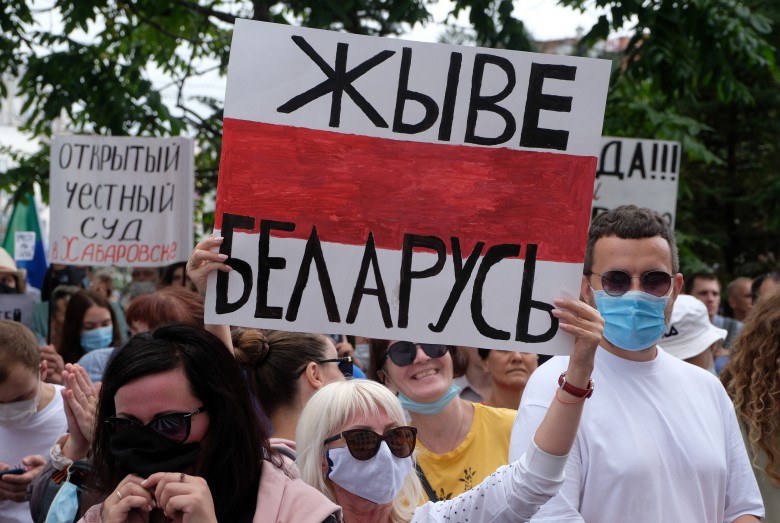
Hasta ahora, para muchos ciudadanos de los países de la ex URSS, el movimiento de izquierda en Rusia está asociado con el Partido Comunista de la Federación de Rusia, un partido de funcionarios, burócratas y oligarcas, dirigido por el multimillonario ruso Gennady Zyuganov y el dictador bielorruso. Alexander Lukashenko es a menudo llamado un socialista consecuente y un verdadero defensor de los intereses de los trabajadores y campesinos. No es de extrañar que fuera el comunista Ziuganov, como invitado de honor, quien invitó a Lukashenko a la próxima Asamblea Popular de Bielorrusia (prototipo – Congreso del PCUS), que se celebrará en Minsk del 11 al 12 de febrero de este año, para justificar represiones masivas por «voluntad del pueblo». Los maníacos siempre exigirán a las autoridades los métodos de difamación, falsificación, profanación y distorsión de la realidad de Stalin, sin importar la ropa ideológica que lleven.
Sin embargo, quien distorsiona las ideas del socialismo, tratando de encubrir su propia tiranía con los intereses de las masas trabajadoras, no puede engañar y destruir el deseo de libertad y justicia del pueblo. Las contradicciones de clase que subyacen al conflicto entre las autoridades y el pueblo solo pueden resolverse de manera revolucionaria. Nos espera una grave agitación económica, cuando la agenda de la izquierda será más relevante que nunca. Y hoy, en una lucha tenaz y amarga por la dignidad humana y la democracia real en diferentes países del mundo, se está creando otra cabeza de puente revolucionaria para futuras victorias y nuevos logros.
